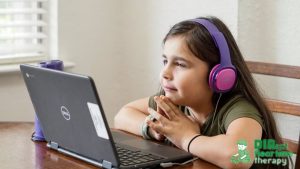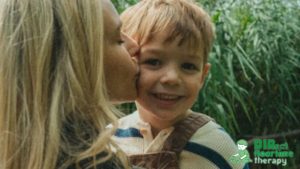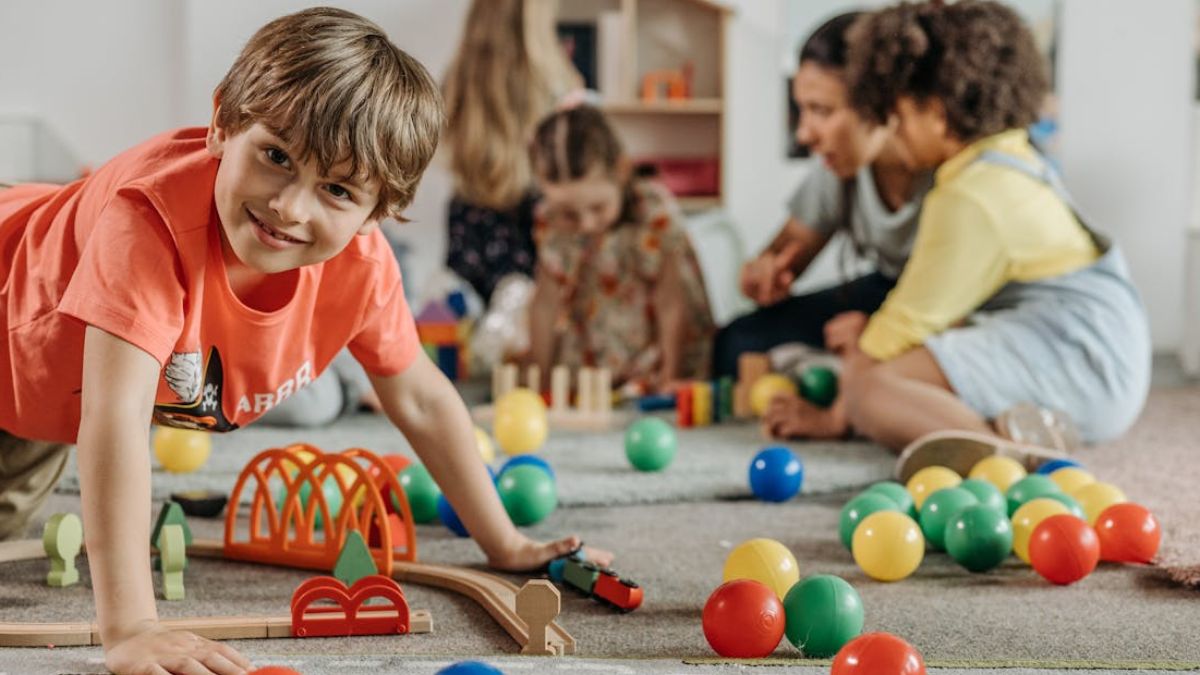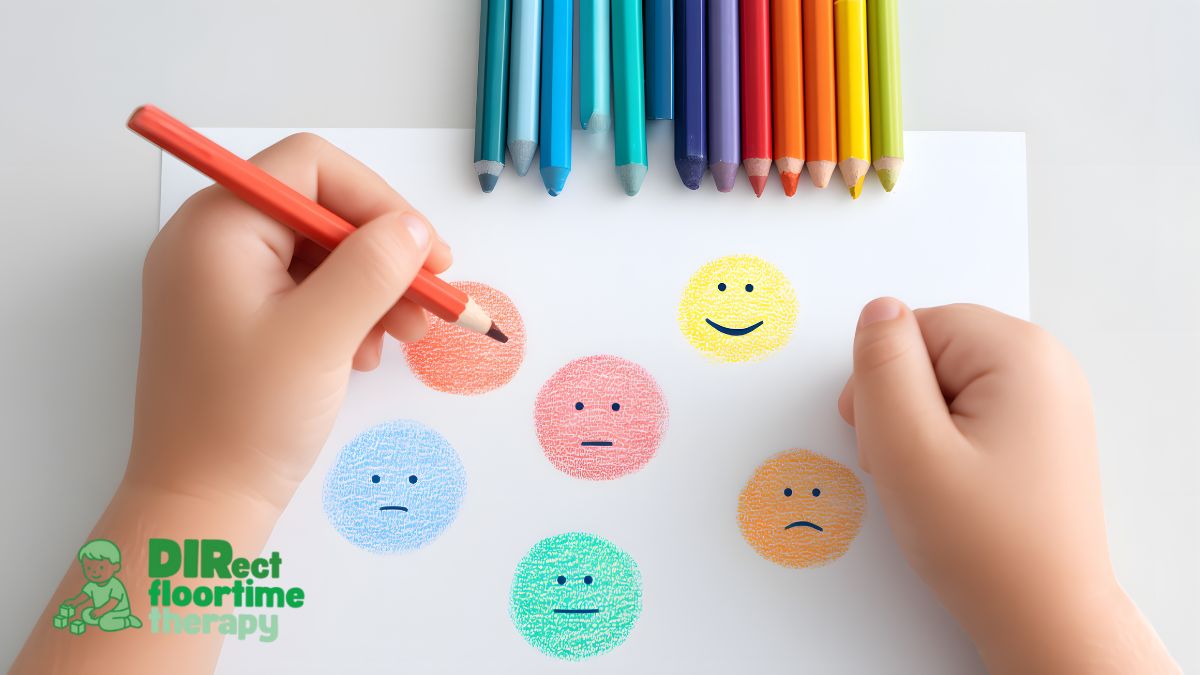Key Points:
- DIR Floortime encourages parents to follow their child’s interests, creating authentic learning through play, communication, and emotional connection.
- The approach supports social, emotional, cognitive, and motor growth, helping neurodiverse children build confidence and problem-solving skills.
- Through coaching, video reflection, and daily interaction, parents strengthen bonds, foster communication, and become active participants in their child’s growth journey.
Parenting neurodiverse children can feel like navigating uncharted waters—but with the right approach, it becomes a journey full of discovery, connection, and growth. One evidence-based strategy gaining recognition worldwide is DIR Floortime therapy. Designed to support emotional, social, and cognitive development, Floortime empowers parents to guide their children through play, engagement, and shared exploration.
Rather than imposing structured lessons, it centers on the child’s natural interests, creating authentic learning moments. How does this method transform daily interactions? How can parents foster communication, empathy, and problem-solving skills while nurturing confidence? This guide will explore practical parenting tips, research-backed benefits, and ways DIR Floortime supports your role as a guide for neurodiverse children.
Understanding General Signs of Neurodivergent Minds

Ever wonder why some kids notice things others miss? Neurodivergent individuals often have sharper senses, spotting patterns, textures, or sounds most people overlook. They may also dive deeply into subjects they love, showing focus that can spark creativity or problem-solving skills. Neurodiversity covers a wide range of brain differences, from how we process sights and sounds to how we move, focus, or think. There’s no single “right” way for a brain to work.
In children, neurodivergent signs show up in social interaction, communication, behavior, and sensory reactions. Some may find it hard to read social cues or make friends. Others might speak differently, have strong sensitivities, or prefer repetitive routines. These traits are usually built into the brain from birth, shaped by genes and biology. Trauma early in life can sometimes make these behaviors appear stronger or mimic them.
The science of neurodiversity shows how a child’s brain grows fast in the first years. Millions of new connections form every second, helping with movement, language, and problem-solving. Understanding neurodivergent minds means seeing these differences as strengths. Could a fresh perspective be hiding in how someone experiences the world?
Understanding DIR Floortime Therapy
Floortime, or DIRFloortime, is a relationship-focused intervention emphasizing developmental growth rather than isolated skill training. At its core, the therapy encourages children to lead, while parents and therapists engage through play and interaction. The model is grounded in understanding individual differences and fostering emotional and social capacities.
Basics of DIR Floortime
Child-centered engagement: Parents meet children where they are developmentally, joining them in preferred activities. Research highlights that emotional engagement is a driver of cognitive growth [Greenspan & Wieder, 2003].
Expanding “circles of communication”: The therapy gradually challenges children to extend attention, respond to cues, and problem-solve collaboratively.
Holistic development: DIR Floortime integrates motor, sensory, emotional, and social growth, promoting well-rounded development rather than isolated skill mastery.
By following the child’s lead, parents become active guides in a journey shaped by curiosity, motivation, and meaningful connection.
Implementing DIR Floortime Anywhere

The flexibility of Floortime allows for practice at home, outdoors, or in community settings. How can parents translate this therapy into everyday life?
Home Settings
Designated play areas: Create zones with toys and sensory materials reflecting the child’s interests.
Structured routines: Incorporate consistent playtime, meals, and bedtime for opportunities to interact and communicate.
Follow the child’s lead: Let the child direct activities, supporting autonomy and engagement.
Outdoor Environments
- Nature walks: Encourage exploration and sensory engagement.
- Playgrounds: Promote cooperative play and social problem-solving.
- Community outings: Use real-life experiences to practice communication and social cues.
Research from Mahidol University showed children engaging in Floortime 15.2 hours per week over three months experienced notable improvements in social communication and emotional regulation.
Therapy for Parents of Neurodiverse Children
Parents are not just participants—they are central to Floortime’s success. Therapy for parents of neurodiverse children strengthens their ability to guide, reflect, and adapt.
Parent Coaching
Parent coaching provides structured guidance to implement Floortime at home. Unlike rigid programs, coaching can be weekly or monthly and emphasizes:
- Understanding child strengths and challenges
- Directing interactions through back-and-forth play
- Expanding communication circles naturally
Video Reflection
By reviewing recorded interactions, parents observe subtle cues and adjust strategies. Studies highlight that video reflection improves both parent responsiveness and child engagement, reinforcing skill generalization beyond formal therapy sessions.
Aligning Goals
Synchronizing parent and child goals enhances effectiveness. Parents focus on interests and capabilities, while children experience play-based challenges tailored to their developmental level. This alignment promotes a supportive environment, strengthens bonds, and encourages consistent progress.
Benefits of DIR Floortime

Enhancing Communication
Through back-and-forth play, neurodiverse children develop gestures, words, and nonverbal cues. A 10-week study published in Physical and Occupational Therapy in Pediatrics showed significant improvements in preschool-aged children’s parent-child interactions, emotional functioning, and communication.
Promoting Emotional Development
DIR Floortime teaches children to recognize, label, and regulate emotions. By fostering empathy and self-awareness, children gain skills critical for social relationships and self-confidence.
Encouraging Social Interaction
Through guided engagement and cooperative play, children practice turn-taking, problem-solving, and joint attention. Case studies, such as Joey’s documented Floortime sessions over three years, demonstrate progressive gains in communication, social connection, and adaptive behavior.
Practical Tips for Parents
- Daily Playtime: Dedicate 20–60 minutes for child-led interaction.
- Follow Interests: Observe and join activities your child naturally enjoys.
- Challenge Gradually: Expand comfort zones by introducing new tasks, encouraging problem-solving, creativity, and resilience.
By applying these techniques consistently, parents support both the child’s development and their confidence as capable guides in their child’s growth journey.
Research and Evidence
- K. Pajareya & K. Nopmaneejumrulers (Mahidol University): 15.2 hours/week of Floortime led to gains in social communication.
- Greenspan & Wieder, 2003: A longitudinal case study demonstrated improvements in emotional functioning and adaptive behaviors through child-led engagement.
- Physical and Occupational Therapy in Pediatrics: 10-week home-based Floortime program improved parent-child interactions and emotional development in preschoolers.
These findings suggest DIR Floortime supports the holistic growth of neurodiverse children while equipping parents with strategies to guide development effectively.
Positive Impact on Families
DIR Floortime benefits extend beyond individual children:
Strengthened Parent-Child Bonds: Shared play enhances trust and mutual understanding.
Increased Confidence: Children gain a sense of mastery, while parents feel empowered in their role.
Holistic Growth: Social, emotional, cognitive, and motor skills improve in a nurturing, child-centered environment.
Engaging in Floortime fosters a positive family dynamic where curiosity, connection, and growth are central.
Strengthening Connections at Home
Direct Floortime Therapy isn’t just therapy—it’s a way to build stronger bonds, improve communication, and grow emotional skills in neurodiverse children. By following your child’s lead, joining in play, and using coaching or video feedback, parents can turn everyday moments into meaningful learning.
How can your family add these practices to daily life? With patience, careful observation, and gentle encouragement, Direct Floortime Therapy helps children and parents thrive. Each play session can become a chance for connection, learning, and joy.
Families in South Jersey can see these benefits in action. Our team guides you with strategies tailored to your child’s unique needs. Want to discover how Direct Floortime Therapy can improve your home interactions? Reach out to us today and start creating moments full of growth, connection, and happy discoveries.



